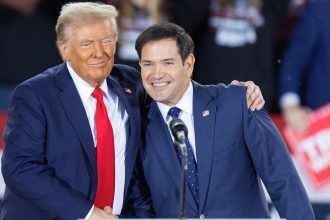Minister of State for Law and Justice Shahadat Awan stated that during the first half of the current fiscal year, Pakistan Railways generated revenue of Rs. 28.263 billion while incurring expenses of Rs. 52. 99 and a net deficit is Rs. 3 billion.
In the Senate on Tuesday, Mushtaq Ahmed of Jamaat-e-Islami asked a question, and the minister responded by stating that salaries made up 33% of expenditures and pensions accounted for 35%. The federal government provided the railways with a subsidy of Rs 21.75 billion as a grant-in-aid.
According to the minister, “the net deficit from July 1 to December 31, 2022, was Rs2.977 billion.”.
Senator Danesh Kumar of the Balochistan Awami Party argued that the railways had distorted the numbers and that their total losses totaled Rs24.727 billion.
Awan responded to Kumar’s follow-up question by stating that the grant-in-aid given to the railways should be recorded as a loss and that the government gave it from the national exchequer to cover the department’s expenses.
He said that the unprecedented floods that devastated the already-damaged infrastructure in the first half of the current fiscal year 2022–23 brought Pakistan Railways more bad news. He suggested enhancing the country’s rail infrastructure so trains could travel at 160 km/h.
The minister referred to the floods, noting that the disaster “not only resulted in revenue loss as train operations were suspended for more than 35 days but also put a further strain on the department in terms of restoring the traffic” from limited resources.
According to the minister, the railways have developed a two-pronged action plan that calls for a focus on core activities and generating revenue through non-core activities. In addition, in cutting costs through better governance, a business plan had been created, he added.
“The plan is being implemented in letter and spirit, and recent initiatives towards digitization in the form of Enterprise Resource Planning (ERP) and Railway Automated Booking and Travel Assistance (RABTA) also aimed at increasing efficiency and reducing the revenue-expenditure gap,” he added.
Awan informed the house that the railways had imported 70 brand-new, high-capacity wagons to increase its freight capacity. Additionally, he continued, “750 additional wagons will be assembled in Pakistan as part of a technology transfer agreement with China.”.
In response to a follow-up question from Dr. Zarqa Suharwardy Taimur of Pakistan Tahreek-e-Insaf, Awan stated that although the Mainline-1 (ML-I) project was in a stalemate during the previous administration, the current administration was working on it quickly.






